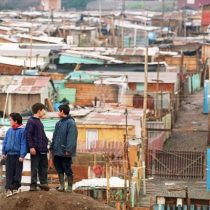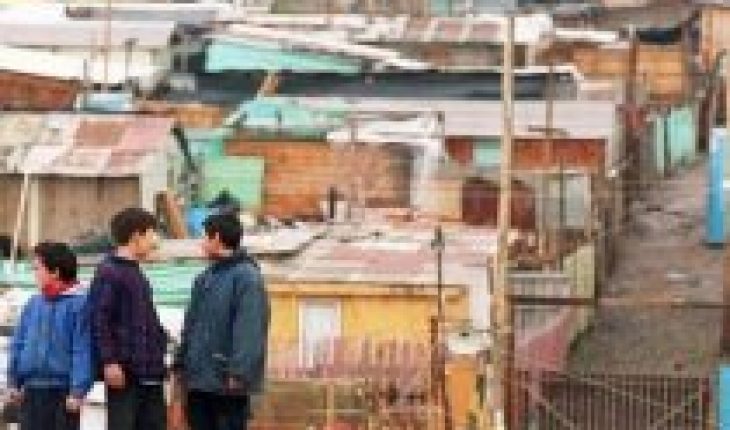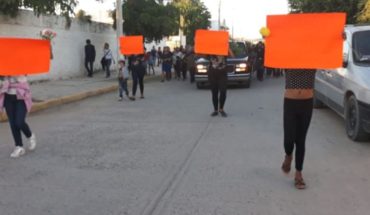
In two columns recently published in El Mostrador, Pablo Paniagua analyses the role of inequality at the current juncture of Chile, as well as in its history. In the first, it submits that, to the extent that income distribution has improved in the recent period, it cannot be argued that it caused the unrest that led to the social outburst of October 2019. This, in my opinion, is a misconception. To claim that cardiac arrest suffered by a man who in the last ten years reduced his weight from 170 to 140 quilos, has nothing to do with his obesity, because it has been decreasing, is meaningless. Similarly, the slight improvement observed in distribution, achieved at an extremely slow pace, in no way invalidates the fact that most Chileans, and in particular their middle class, suffer the consequences of high inequality. It is therefore reasonable to assume that this is one of the root causes of the current situation. To the extent that I have developed this argument in other notes, published in Ciper, in the magazine NEXOS de México and in the Uruguayan newspaper La Diaria, I will not abound at this point. My objective is to discuss the conclusions paniagua draws from the reading it makes, in its second note, of the history of inequality in Chile.
From diverse literature, among it my own work (which I commend, which I appreciate), Paniagua makes a series of statements: that high inequality is a long-lasting trait in both Chile and Latin America, that it has improved or worsened at different times and under different models of development, and that a strong state does not guarantee per se an improvement in distribution. These are statements corroborated by the evidence and which, in the latter case, also counts the livelihood of common sense. However, the argument you make from them seems to me not only to be debatable, but to be wrong.
Paniagua argues that, given the above, Chile’s growth model since the 1980s is unrelated to the country’s high inequality, the causes of which lies in institutional and cultural factors anchored in the continent’s long history. It follows that a profound change in economic institutions and policies – such as that which could be opened up with the new Constitution – is not what is required to make Chile a more prosperous and just country.
One thing, however, is to argue that a phenomenon, such as high inequality, is a long-lasting trait, and another to conclude that the recent period is therefore irrelevant. On the contrary, Chile’s current situation is a direct result of the rapid and profound deterioration suffered by the distribution of income during the dictatorship led by General Pinochet. A situation that remained in time, and has barely improved, as a result of the characteristics of the economic model then established and then sustained. Paniagua avoids this problem by comparing the current distribution measure with that of 1990, when it was perhaps the most unequal country in the world. Thus, the jump produced between 1975 and 1987 is unknown.
Contrary to those that some claim, the years of dictatorship, far from prosperous, were extremely convulsive in economic terms. The country went through two deep crises (in 1975 and 1982) whose weight fell disproportionately on lower-income sectors; people who still suffer the consequences in their lean retirements. And the recovery, when it arrived, also disproportionately benefited high-income sectors. This radical redistribution of income, the result of a “shuffle and give again” cheating by the institutional situation, was crystallized by the series of economic reforms that laid the foundations of the model, particularly the privatization of vast areas of economic and social life and the obstacles placed to labour negotiation and unionization. What is remarkable is not that distribution has improved with the advent of democracy, but how little it did and how slow its progress. I include poverty reduction, which would have been much faster if growth had been added to reducing inequality, a conclusion that is based not only on comparison with other experiences, such as Uruguayan between 2005 and 2012, but on arithmetic.
It’s true that long duration matters too. In fact, under the oligarchic regime of the early twentieth century, the Chilean state promoted a regressive redistribution of characteristics similares to that provoked by Pinochet’s dictatorship and maintained, in essence, by the democratic governments that followed him. So it is true, as Paniagua argues, that a strong state in no way guarantees greater equality, because often that force is put at the service of the opposite objective. What has endured in Latin America and Chile is a privileged relationship between the state and the economic elite that allows the second to appropriate a very high share of what all Chileans produce with their knowledge and effort. A relationship whose origins we can trace back to the colonial period and which had in the dodal regime a key element not only in the region of the central valley, but also in La Araucanía and whose consequences we still see today, when owners and managers of mining or forestry companies, banks, AFP, Isapres, chains of pharmacies or retail, have replaced the pattern of foundation as a symbol and embodiment of economic and social power.
The institutional framework in which the power of the elite is based feeds and is fed by certain features of the production process, in particular an economic specialization based on the production of intensive goods in unprocessing natural resources, which constitute, with that, the other structural determinant of inequality. Along with other factors, this results in a heterogeneous productive structure, in which large sectors of workers only access informal and low-skilled jobs, which, in addition to providing them with lean incomes while working, impoverish them when it comes time to retire. A desperate situation that has been aggravated by the pandemic.
But the history of inequality – or anything else – is not only signified by continuity, it is also change. Thus, the process of democratization produced after 1939, which weakened the relationship between political and economic elite and forced the right to “share power”, to use the happy expression of Sofia Subtle Correa, was one of the fundamental factors in improving income distribution, wages, and the human development index – particularly in its education and health components – , which show historical statistics from that year on.
While these developments stopped when inequality was still high, reaching the limit imposed by the characteristics of the productive structure to which we referred earlier and which the alternative industrialization of imports had failed to remove in its entirety, what reversed them was not the economic situation – which in any case put a ceiling on them – but the new political orientation. Again the political change and its reform of the economic model, this time imposed in dictatorship and sustained by a low-intensity democracy, based on an institutional regime that has been losing its breath until it is exempted. Therefore, the process of change that was opened in October 2019 and which has a cardinal component in the Constitutional Convention, can lead, if Chileans and Chileans so wish – and everything seems to indicate that they do – a more prosperous and just country, as well as a more vigorous democratic regime.
No institutional change, no public policy, is guaranteed success beforehand. But there is something of a guarantee of failure. The lousy distribution of income that impoverishes most Chileans – particularly middle-income ones – has corroded the political system and fuels citizen unrest, hardly improves unless the pillars on which it sits are not fully remeated. Those who, established in the 1980s – more than thirty years ago – through a series of reforms covered by repression, censorship and terror, have built a country in which, beyond their advances, education and ignorance, work and rest, care and respect, health and disease, and even going to jail or receiving ethics courses , depend – to an unacceptable extent for a democracy – on the amount of zeros one has in its bank account.





